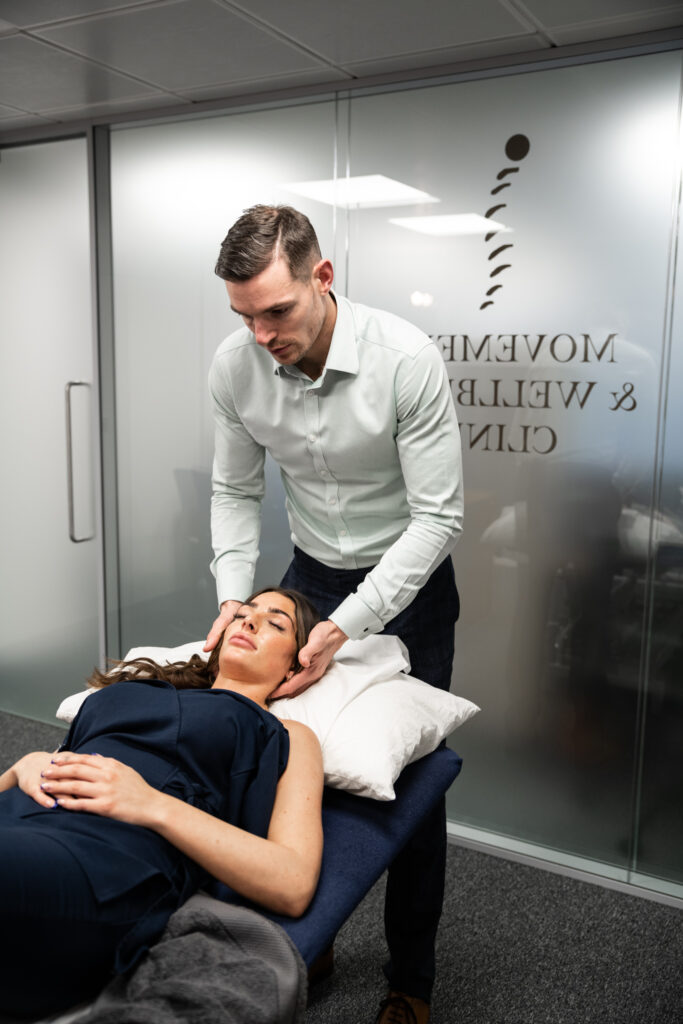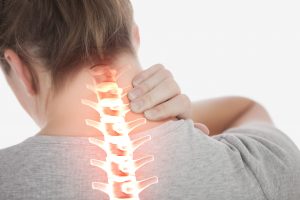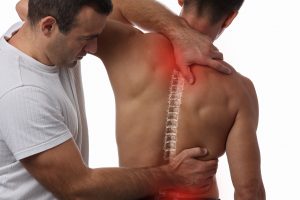Tension Headache
There are various distractions that we must tolerate in life. One of the most common and frustrating is pain. Pain can be reduced and eradicated through various means, such as applying heat, movement, and visiting your Osteopath, but tension headaches bring a different form of frustration. This is because tension headaches feel quite different and don’t really respond to traditional pain-reducing methods. Furthermore, tension headaches are made worse by becoming stressed about.
Tension headaches are very common in the human population, with an overall prevalence of around 80% (1). They may be common due to the stressful lifestyle many of us have, and it is no coincidence that tension-type headaches are also known as:

- Muscle contraction headache
- Stress headache
- Psychogenic headache (2)
So many people are subject to it, yet very few understand the nature of it, and how to manage it themselves.
You would expect that with such a high prevalence, we’d see many more patients affected by it at the Clinic. The truth is that this isn’t the case. You can get tension headache relief at home. The aim and purpose of this blog is to inform you if you are suffering from a tension-type headache, and how to manage it most effectively.

What are Tension Headaches?
Tension-type headaches are commonly described as mild to moderate constant pressure on the front of the head forehead, face or neck. They are differentiated from other headache types by the duration of the headache, and its’ mild intensity. In order to be sure of the diagnosis, you need to have no other symptoms, such as nausea or vomiting, and only be suffering from no more than either light or noise sensitivity.
We don’t know why they occur, but there are a couple of theories:
Trigger points:
Trigger points are painful points that may transfer pain into another area of the body (in this case, the head). Excessive muscular contractions may cause reduced blood flow into the area, in addition to noxious substance release, which can cause pain (3). There may also be a tightening of the muscles around the neck and head that pulls on the lining of the spinal cord, which may result in causing pain (4).
Autonomic dysfunction
Your autonomic nervous system is the unconscious control system that regulates processes such as breathing, digestion and heart rate. This can become dysfunctional for a variety of reasons. One of the main reasons for this, in relation to headaches, is sleep disturbance. This may be because, as a result of poor sleep, the production of a molecule known as orexin is reduced, which in turn increases the sensation to the nerves located in your head and face (4).
What are the different types of tension headaches?
There are three different subtypes of tension-type headaches; you may find that you will fit into one of the following categories:
- Infrequent (>1 day per month)
- Frequent episodic (1-14 days per month)
- Chronic (>15 days per month) (5)
To understand the type of headache you’re getting is important in the management of the headache. For example, NSAIDs have been shown to help with episodic tension-type headaches and are designed to reduce the intensity of the headaches (6), whereas amitriptyline could play a key role in reducing the frequency of chronic tension-type headaches (7). Medications should only be taken after consulting your G.P.
What may or may not be causing my tension headache?
Stress
There appears to be a relationship between those suffering tension-type headaches and anxiety and depression (8). There is also a relationship between anxiety and depression and the intensity of the headaches you are suffering from (9). This suggests that Psychological interventions may well be useful in the management of tension-type headaches.
Posture
Poor posture seemingly has no effect on the intensity or severity of tension-type headaches. (10).
Vitamin D deficiency
There has been research into the association between chronic tension-type headaches and vitamin D levels. The research showed that vitamin D levels were significantly lower in study participants with chronic tension-type headaches than those in non-sufferers (11).
There is also a strong correlation between vitamin D levels and muscle tenderness, muscle weakness and atrophy, as well as general balance problems (12).
What can I do to help?
Natural Remedies
As this isn’t a severe health issue, most people respond well to self-management combined with occasional visits to a therapist. Much of what your Osteopath or Physiotherapist can do is to enlighten you on how to deter your headaches. You can do this by identifying and understanding your triggers, combined with self-care management. Keeping a headache diary can be useful, and should consist of the following questions:
- When did the headache occur?
- How long did they last?
- How severe were they?
- What were the triggering factors?
- What helped you to relieve them?
An Osteopathic study (13) has been shown to suggest that traction, soft tissue techniques and manipulation can help, alongside other lifestyle changes. Research was also carried out using just Osteopathic manipulation on frequent episodic tension-type headaches. This research showed improvements resulting from just using the technique (14).
Cognitive behavioral therapy can bring relief from all types of headaches, including tension-type headaches; but, like most things, the combination of a variety of interventions is often the most effective. (15)
Pharmaceutical
Although Osteopaths cannot prescribe medication, I am able to post the relevant research in order to inform you and help you to make your personal choices. Please don’t forget; always consult your G.P before considering taking medications of any sort.
The research suggests that Amitriptyline is the first-line medication of choice, as this can help to reduce inflammation and lowers pain signals to the brain. If this doesn’t work, Mirtazapine is the second-line medication that can work (16).
Interestingly for something that is seemingly due to ‘tight muscles’, muscle relaxants don’t work.
For any further questions, please don’t hesitate to ask:
0161 209 2980
info@movementandwellbeingclinic.co.uk
Ed Madeley M.Ost

